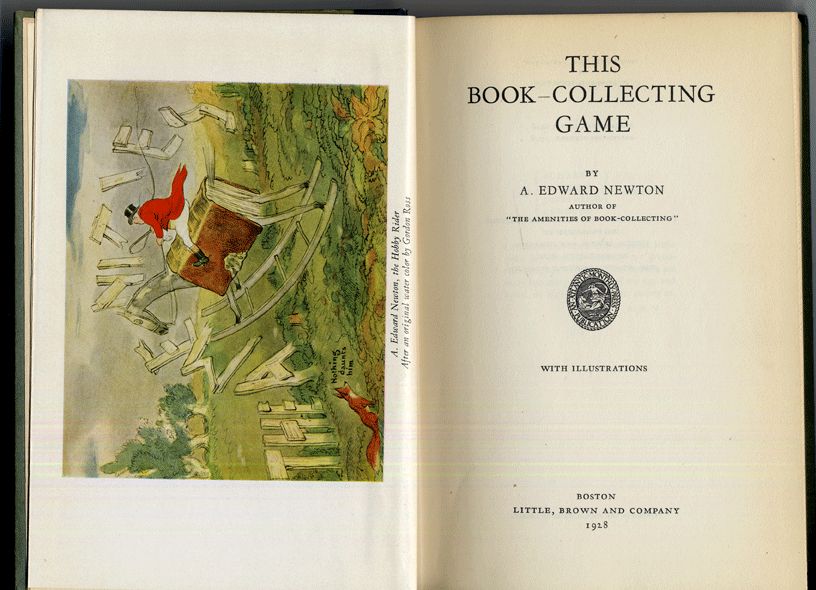Book Collecting in the Modern Era
- by Bruce E. McKinney

A cautionary tale
By Bruce McKinney
Book collecting is a difficult undertaking that requires luck, determination and perseverance and then only occasionally achieves success sufficient to warrant enduring approbation, the payoff that many serious collectors hope for but most rarely achieve. England has its Westminster Abbey to remember its greatest writers and America its museums, institutions and societies to render similar service. In all provinces and jurisdictions authors have their advocates. If successful they may be widely read, their words translated, and their ideas discussed. If their statements and stories are pithy they may even enter the lexicon for a generation or two. Be writer, printer and statesman and your aphorisms may, as they have for Benjamin Franklin, echo down through the ages. But be only a book collector in pursuit of something more than material and you scale the sheer face of an Everest in bad weather. What immortality that is available is most reserved for those who link their collecting with generosity.
Collectors, in the skillful and canny pursuit of material, can achieve a faint immortality themselves through the dispersal of their book plated copies that, scattered to the wind, carry their names as footnotes in the fine print of books well described. For those who have once cared, and by luck or skill owned important copies, the owner's name may survive and perhaps be remembered long after the spirit and the bones have parted ways.
Less often, single owner collections are the subject of auction catalogues and in this way rise another rung toward immortality if only among that few that track ownership and specific copies across the generations. Yet other collectors give single volumes and whole collections to institutions and achieve a recognition that resonates with the IRS but for the institution fades with time unless the donor's name is carved in marble or granite. A few institutional collections bear collector names and even, once in a blue moon, the occasional library their names to future generations. The recognition, however, whatever the level, is always about what was collected rather than how it was collected. The collector at most could hope to join the stygian chorus whose judgments reflect approval and sometimes disapproval of the masters, the writers and sometimes publishers, their first editions, best editions, signed copies, and the perfect and unique ones they pursued through the decades of a collecting life. The judgment and discernment of the collector has rarely been the focus.
This is not to say that collecting cannot achieve importance. It can and I think in the current generation will. For the emerging generation the new calculus will be about how collections are formed and I think cost and value will become a thread in the calculation of achievement. The loss of price as reference over the past fifty years has permitted an upward spiral in price, if not value, that has been based more on the ability to pay than on rarity, condition or importance. In the years ahead great material will continue to obtain great prices while the lesser lights will, like Icarus, fall to earth. In the new calculus deeply focused collections will become the norm, their value and importance enduring. These are collections that will matter whether they are about subject, place, genre or gender. The emerging tools on the web are simply setting the standards ever higher. If the focus has been on high points it will shift to intensity.